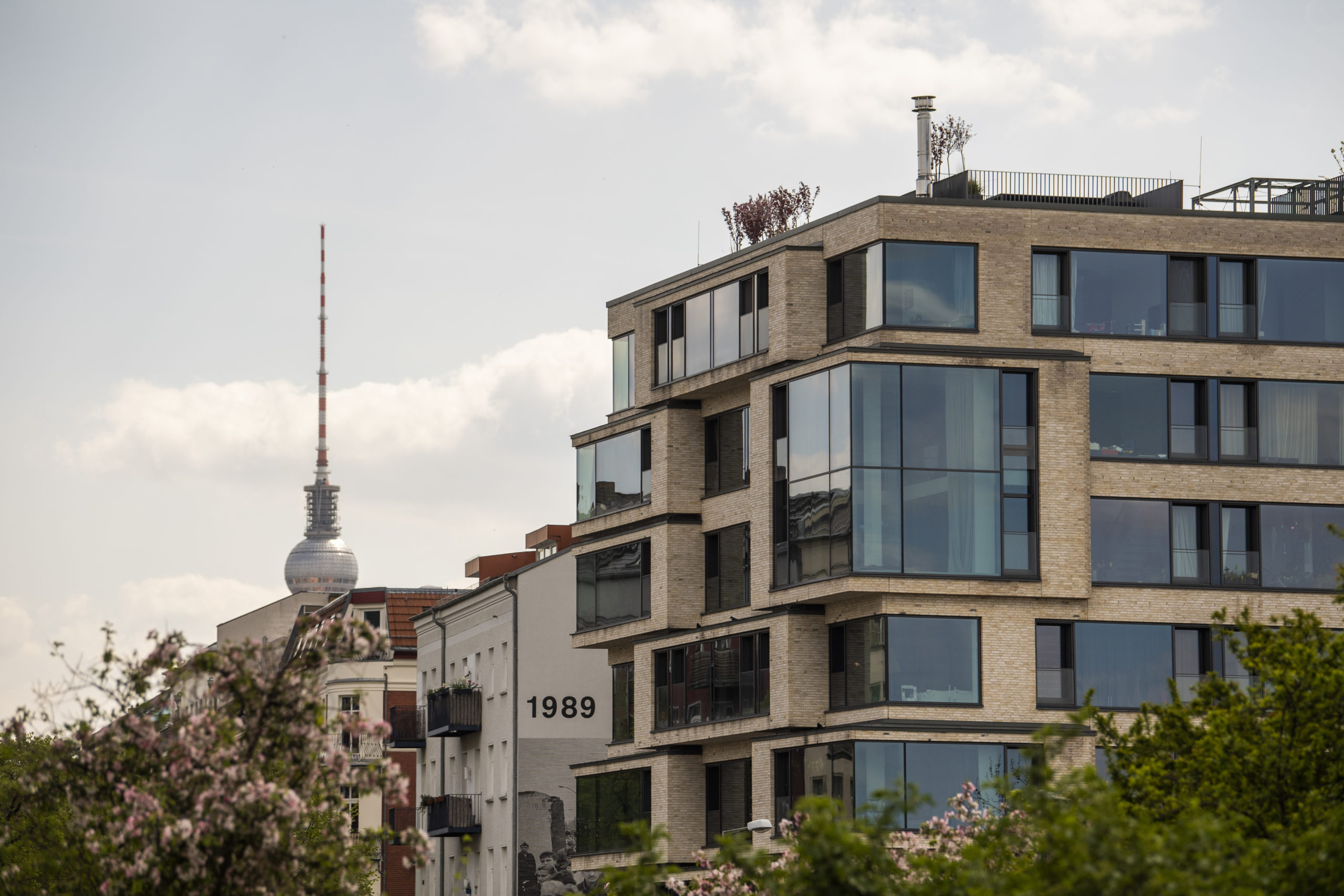The last time we reported on the rent price brake (Mietpreisbremse), it had looked like Germany's primary the rent control measure was in the danger of expiring this year.
But following initial coalition negotiations between the Union and Social Democrat parties, it appears Germany's likely government-to-be plans to extend the rent brake for at least another two years - and even enforce it more strictly.
Among the working groups negotiating the pending coalition agreement between the Union and SPD is one tasked with discussing policy related to transport and infrastructure, construction and housing. This group has shared its draft proposals with DPA, including a plan to extend the rent brake beyond its 2025 expiry date.
This echoes what the parties set out in their exploratory paper before sitting down for formal coalition talks. In this whirlwind 11-page document, the CDU/CSU and SPD pledged to make rents more "affordable" and "accessible" and extend rent controls over the next two years.
However, the working group's plans go one step further, pitching fines for landlords who do not comply with debt brake by the end of 2026.
If the fine were to be implemented, it would be a significant step toward enforcing the rent control that tenants advocates have been calling for.
The rent brake in its current form doesn’t come with any real consequences for landlords who break it beside potentially having to reimburse tenants for the amount they have overcharged.
The lack of penalties for those who violate the law is part of the reason the rent control has largely failed to slow rising rents in particularly competitive housing markets - like that in central Berlin.
READ ALSO: Why are Berlin rents soaring by 20 percent when there's a rent brake?

Dr. Daniel Halmer, CEO of Conny, a legal service provider which helps tenants enforce the rent brake previously told The Local that of the cases his company took on, they found "a violation rate of 75 percent in Berlin".
Put simply, the rent brake limits rents in new contracts in regions with a tight housing market. Generally rents can't exceed an average rent price for comparable units (which is determined by a rent price index, or Mietspiegel). However there are various loopholes, such as for newly built apartments or for furnished or short-term rentals.
READ ALSO: How much are rents going up in German cities?
Other proposed measures
DPA reported that the working group has also proposed a tax bonus for landlords who offer their apartments at low prices. But the price limits for the incentive haven't yet been determined.
Also, in hopes of boosting housing construction, the group proposes creating an "investment, tax relief and reduction of bureaucracy offensive". To this end existing KfW funding programmes are to be combined: one for new construction, one for modernisation.
READ ALSO: Which German cities are the most in need of new housing?
What's next?
While the paper certainly bodes well for the continuation of the rent brake, it's not yet a guarantee.
Chief negotiators of the parties still need to discuss the proposals from each working group, and parts may be changed in the final coalition agreement. Even if this happens, of course, inclusion in a working coalition agreement is still a few crucial steps short of being written into law.
According to DPA, SPD and Union members disagreed on a few key details in initial talks. These differences could still cause friction as party leaders sit down for the next phase of negotiations.
Crucially, the SPD wanted to limit rent increases more strictly under the rental brake. They proposed that in areas with a tight housing market, rent increases should be capped at six percent in three years, or up to the local comparative rent (as established in the rent price index), and in all other regions at 15 percent instead of the current 20 percent.
For their part, representatives of the conservative Union parties rejected a tightening of the cap.
READ ALSO: What changes for renters and homeowners in Germany in 2025
With reporting by DPA.

Join the conversation in our comments section below. Share your own views and experience and if you have a question or suggestion for our journalists then email us at news@thelocal.de.
Please keep comments civil, constructive and on topic – and make sure to read our terms of use before getting involved.
Please log in here to leave a comment.